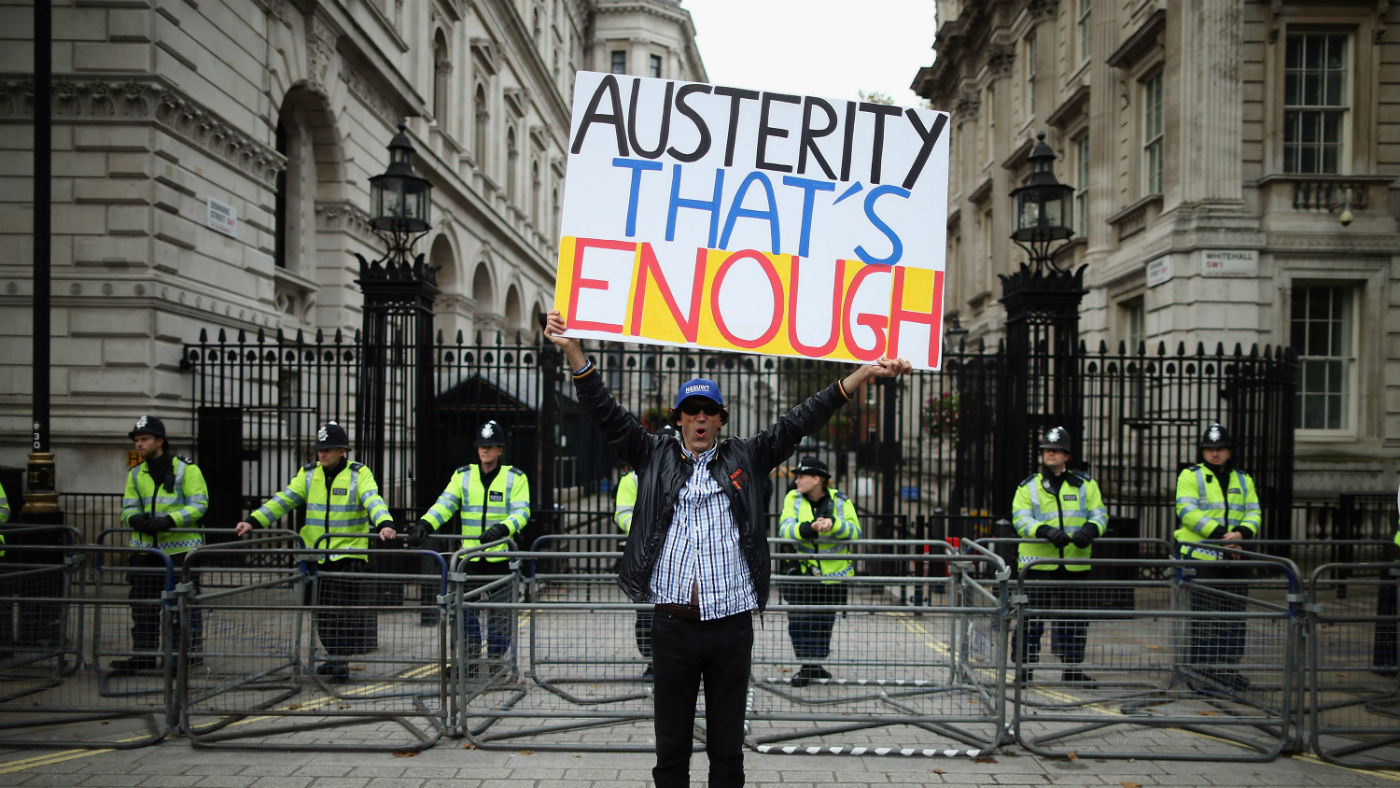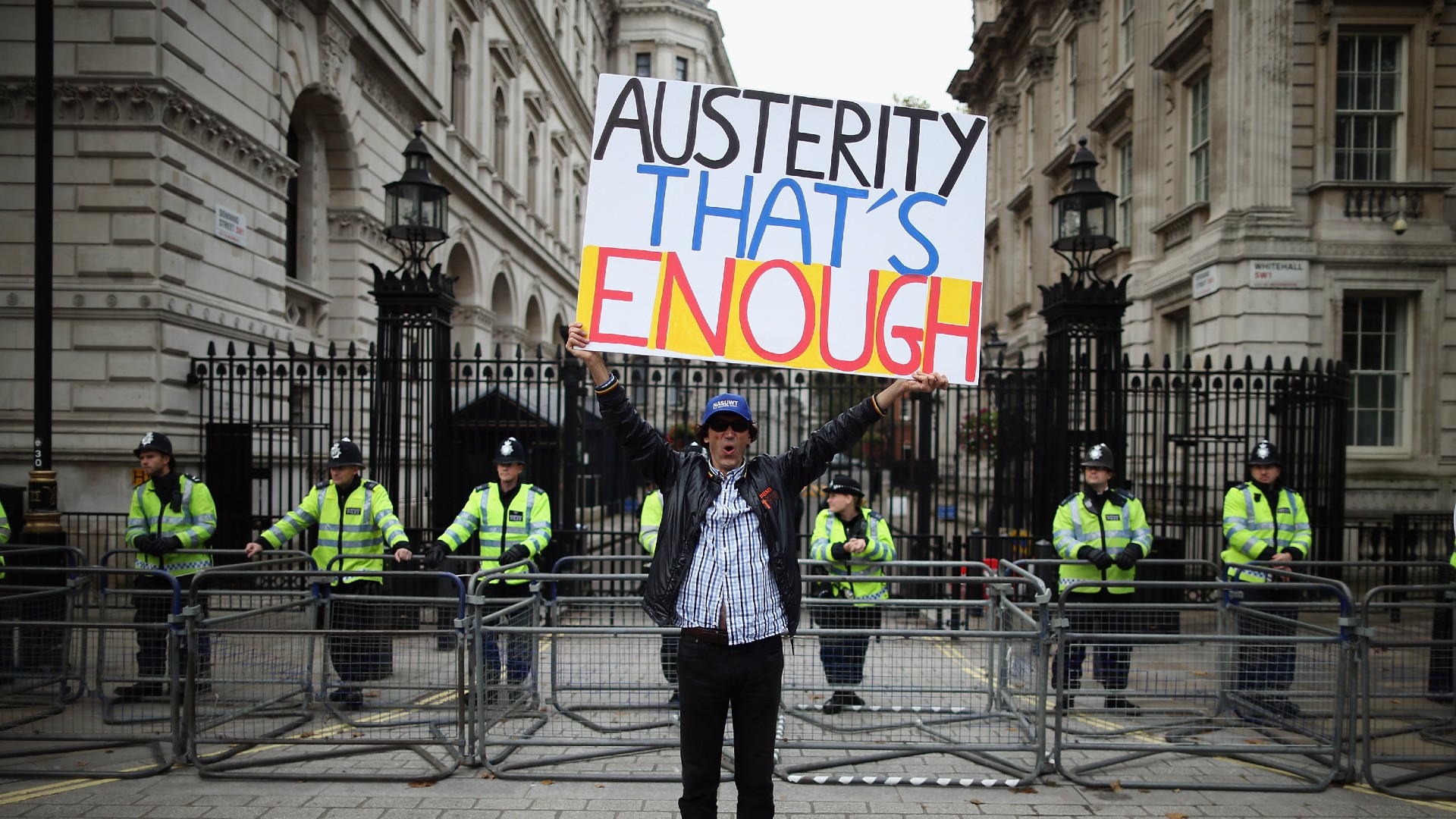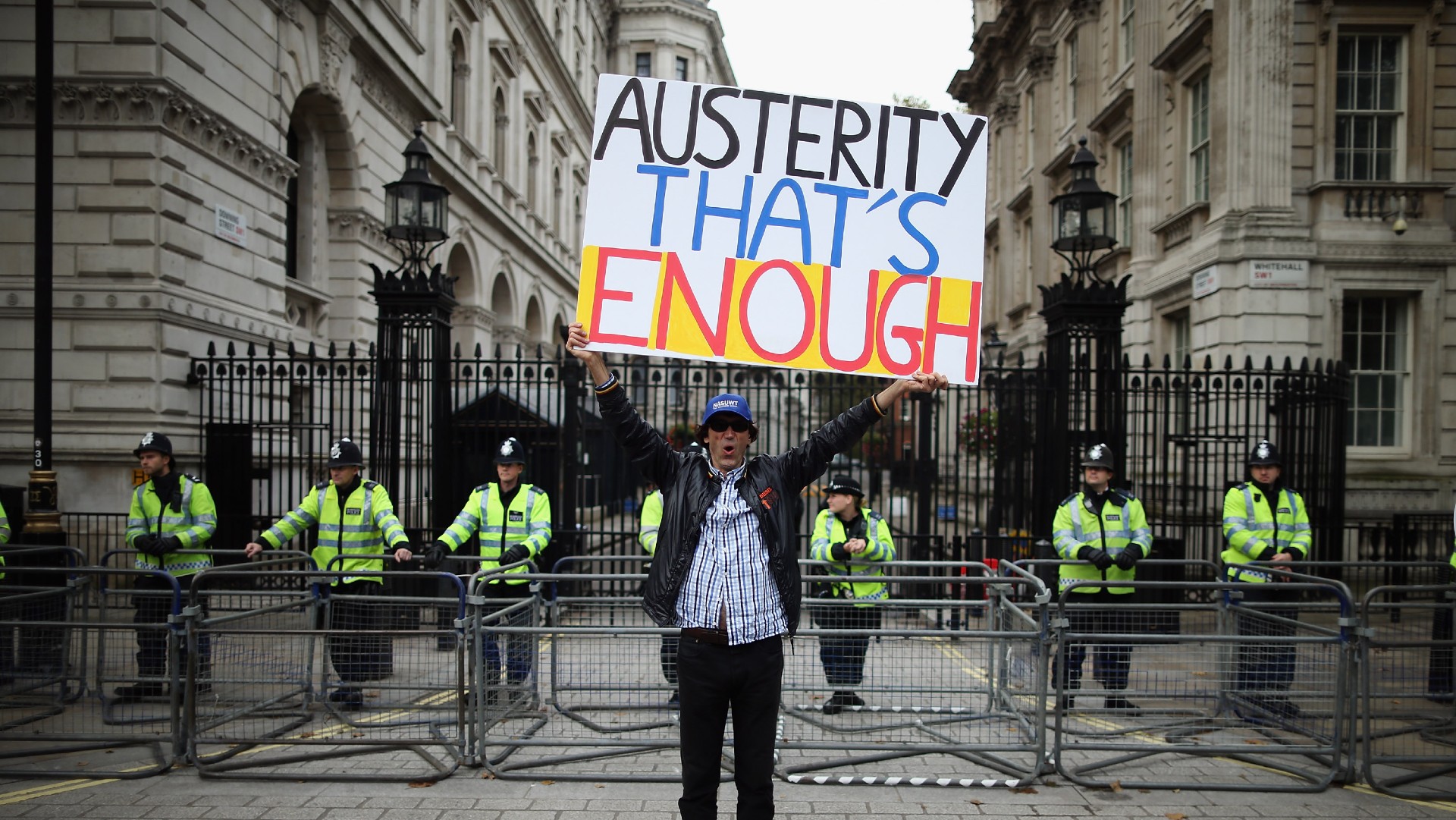End austerity or eliminate the deficit?
Theresa May faces ‘stark choice’ as IFS warns of massive tax hikes needed to ease squeeze on public services

A free daily email with the biggest news stories of the day – and the best features from TheWeek.com
You are now subscribed
Your newsletter sign-up was successful
British taxes would need to rise to their highest levels since the 1940s to meet Theresa May’s promise to end austerity, the Institute for Fiscal Studies has suggested.
The think tank has calculated the prime minister would need to magic up a massive £19billion a year just to achieve a “minimal definition” of ending austerity.
The Chancellor, Philip Hammond, who last year backed down on planned tax rises for self-employed, has set a target of running a balanced budget by the mid-2020s.
The Week
Escape your echo chamber. Get the facts behind the news, plus analysis from multiple perspectives.

Sign up for The Week's Free Newsletters
From our morning news briefing to a weekly Good News Newsletter, get the best of The Week delivered directly to your inbox.
From our morning news briefing to a weekly Good News Newsletter, get the best of The Week delivered directly to your inbox.
However, just two weeks before he is to deliver his budget, fiscal prudence has come into conflict with political expediency as the Tories look to woo disaffected voters tired by ten years of public sector cuts.
Amid economic uncertainty surrounding Brexit, the prime minister has already earmarked an extra £20 billion for the NHS, doubling down at this month’s Tory party conference by telling delegates austerity “is over”.
The question now is whether the government’s actions will match her rhetoric.
If the Chancellor chooses to fund the end of austerity by raising taxes by 1% of national income, “this would bring the overall tax burden close to its highest level since the end of the Second World War - though it would still be in the middle of the range for developed industrial countries”, says Insider.co.uk.
A free daily email with the biggest news stories of the day – and the best features from TheWeek.com
The IFS says higher taxes need not hurt the economy but May’s fragile hold on power, as she attempts to navigate Brexit, makes significant increases unlikely.
Instead, “efforts to lighten Britain’s debt burden were the likeliest casualty of May’s promise to end austerity, potentially leaving the country vulnerable when the next economic crisis hits”, reports Reuters.
“Increasing borrowing is clearly the line of least resistance,” IFS director Paul Johnson said. “It’s going to be very hard, for all sorts of very obvious reasons, for anything very substantial in terms of tax rises in the short run.”
While the budget deficit fell last year to its lowest level since 2002, public debt as a share of GDP has more than doubled since the financial crisis.
City A.M. says the government, therefore, faces “a stark choice between upholding Theresa May’s promise to 'end austerity' or meet its target of eliminating the deficit”.
Describing May’s austerity boast as a “sham”, the Daily Mirror says “even if she achieved the impossible that would still leave a devastating £7billion worth of savage cuts to social security”.
-
 The environmental cost of GLP-1s
The environmental cost of GLP-1sThe explainer Producing the drugs is a dirty process
-
 Greenland’s capital becomes ground zero for the country’s diplomatic straits
Greenland’s capital becomes ground zero for the country’s diplomatic straitsIN THE SPOTLIGHT A flurry of new consular activity in Nuuk shows how important Greenland has become to Europeans’ anxiety about American imperialism
-
 ‘This is something that happens all too often’
‘This is something that happens all too often’Instant Opinion Opinion, comment and editorials of the day
-
 French finances: what’s behind country’s debt problem?
French finances: what’s behind country’s debt problem?The Explainer Political paralysis has led to higher borrowing costs and blocked urgent deficit-reducing reforms to social protection
-
 New austerity: can public services take any more cuts?
New austerity: can public services take any more cuts?Today's Big Question Some government departments already 'in last chance saloon', say unions, as Conservative tax-cutting plans 'hang in the balance'
-
 Liz Truss and Kwasi Kwarteng’s supply-side reforms
Liz Truss and Kwasi Kwarteng’s supply-side reformsfeature PM and chancellor are banking on cuts to regulations and tax in bid to stimulate growth
-
 Do Tory tax cuts herald return of austerity?
Do Tory tax cuts herald return of austerity?Today's Big Question Chancellor U-turns on scrapping top rate tax but urges ministers to make public spending cuts
-
 Labour shortages: the ‘most urgent problem’ facing the UK economy right now
Labour shortages: the ‘most urgent problem’ facing the UK economy right nowSpeed Read Britain is currently in the grip of an ‘employment crisis’
-
 Will the energy war hurt Europe more than Russia?
Will the energy war hurt Europe more than Russia?Speed Read European Commission proposes a total ban on Russian oil
-
 Will Elon Musk manage to take over Twitter?
Will Elon Musk manage to take over Twitter?Speed Read The world’s richest man has launched a hostile takeover bid worth $43bn
-
 Shoppers urged not to buy into dodgy Black Friday deals
Shoppers urged not to buy into dodgy Black Friday dealsSpeed Read Consumer watchdog says better prices can be had on most of the so-called bargain offers